
Early last Sunday morning, our country ended the application of his measure. summer time and the clock was set back one hour. From one sanitary point of viewmost experts argue that daylight savings time should be in effect all year round.
In particular, talking to Washington Post, report that early morning sunlight plays an important role in maintaining our circadian rhythm, sleep cycles, and overall health. Phyllis Zee, a neuroscientist and head of sleep medicine at Northwestern University in the US, says that without morning sunlight, the circadian rhythm can be adversely affected.
This, he claims, happens “when our body’s internal ‘clock’ becomes out of sync with the sundial and our social interactions.”
Experts say the concern about permanent daylight savings time is that it will cause our bodies to get out of sync with the sun, causing a number of health problems.
“We would have lost [τη χρονική ευθυγράμμιση] with sunshine all year round,” says Beth Mallow, professor of neurology and pediatrics and head of sleep research at Vanderbilt University.
How does it affect the body?
So how can a difference of just one hour have such a significant impact on our health? The photos below show in detail how changing time affects the brain and health:
Let’s say we are:

Our brain has an internal clock.
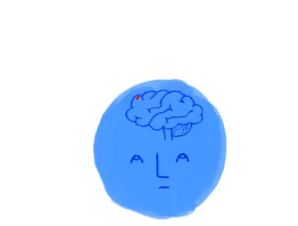
This ensures that all the functions of our body related to the heart, metabolism, hormonal fluctuations and sleep are performed at the right time.
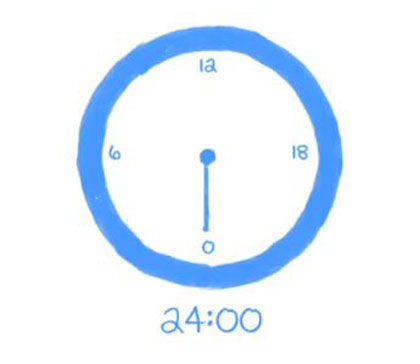
But for most of us, this internal clock is a bit outside the 24-hour format.
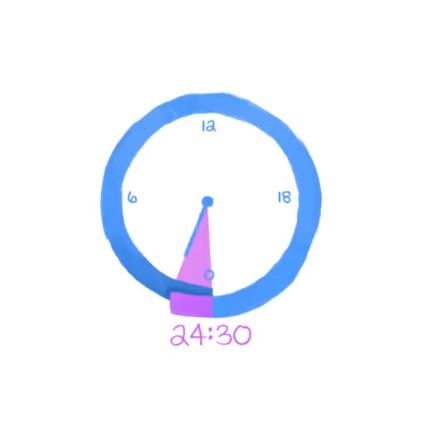
Luckily for us, the sun has risen and is helping us by sending signals to special receptors in our eyes.
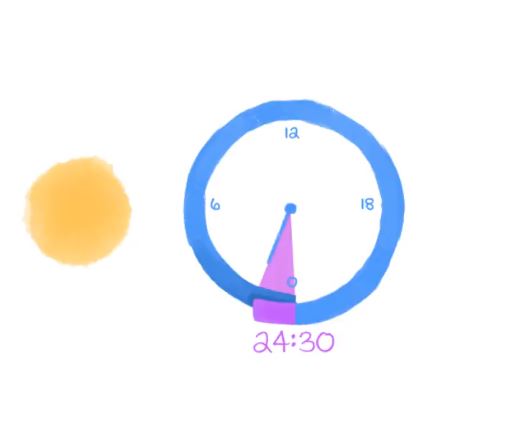
Every morning, sunlight resets our internal clock, returning it to 24 hours of the day.
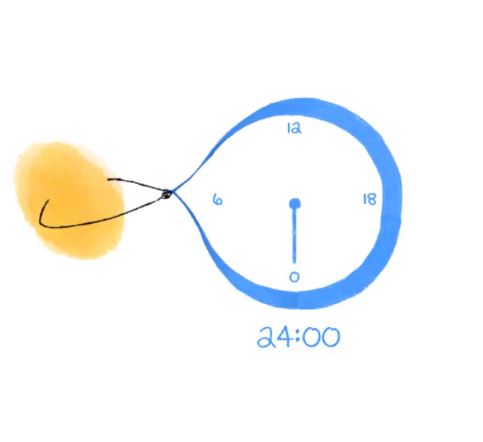
Then, after sunset, the lack of light allows our bodies to produce hormones like melatonin, which help us sleep.
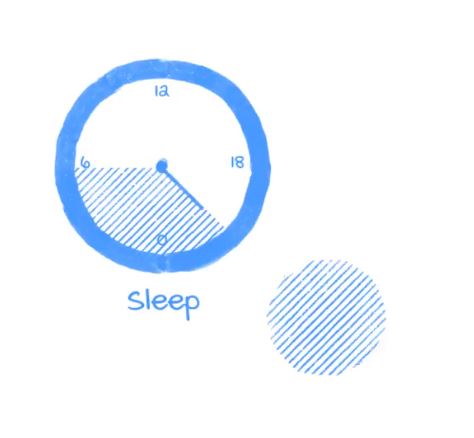
Just as sunlight can “pull” our internal clock back, light from any other source in the late afternoon can do the opposite and “push” our clock forward.
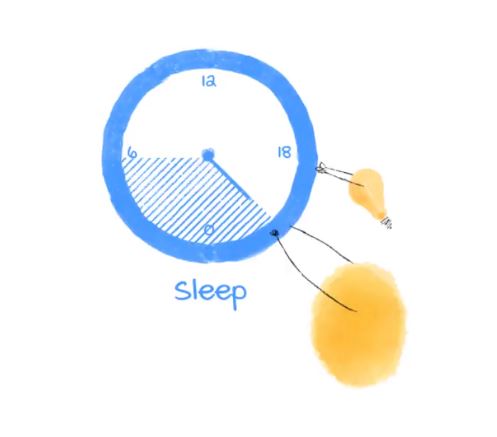
This can negatively affect our sleep.
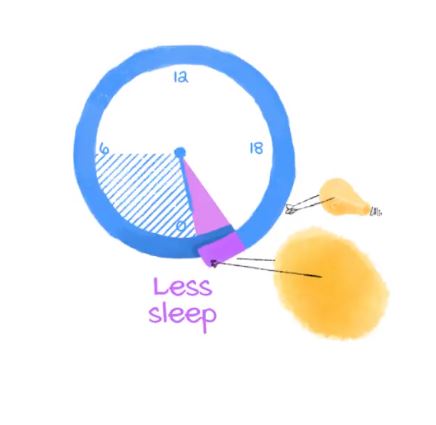
With the change of time in spring, we are suddenly interrupting this important connection between our brain and the sun.
This is because our biological clock has reached a point where it coincides with sunrise, sunset and 24 hours a day.
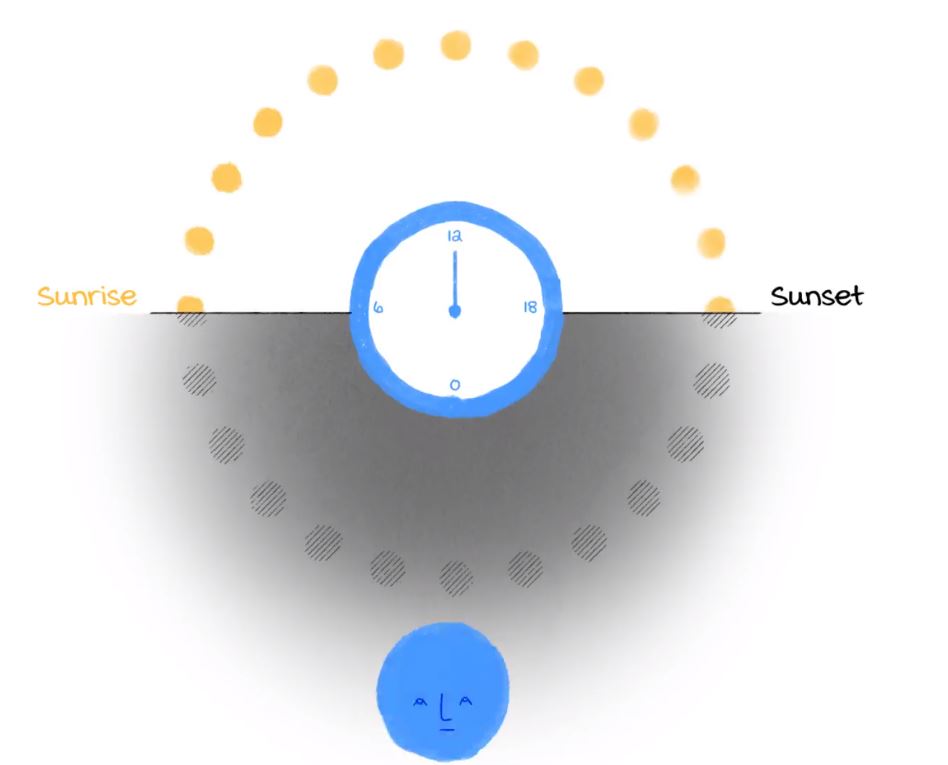
In the same way, the hours by which we had previously organized our lives were aligned to the 24 hours of the day.
Every March, when we return to daylight saving time, our daily routine is moved forward one hour.
But the movement of the sun does not change. Solar noon, which has been aligned with our internal clock, is still aligned with the time it was before the change. Thus, our daily routine and solar noon cease to coincide.
Unfortunately, the brain clock cannot be adjusted as quickly as the clock we have at home. Our biological clock needs at least a day to adjust to the change in time. And for some people, this time may be longer.
Dangers of Constant Daylight Savings Time
One of the biggest problems caused by daylight saving time is that it interferes with our sleep. Our body is not yet ready for sleep at the time we are used to, which is now 60 minutes earlier.
In addition, permanent daylight savings time may put people at increased risk of seasonal depression during the winter months, experts explain. They also note that changing the circadian rhythm can have a negative impact on the production of important hormones such as melatonin.
Living out of sync with our internal clock for extended periods also increases the risk of insomnia, obesity, diabetes, heart disease, mood disorders, and certain types of cancer.
Melatonin has anticancer properties, meaning it can slow the spread of cancer, said Charles Chisler, head of sleep disorders and circadian rhythms at Brigham and Women’s Hospital.
But what if we accept standard time for the whole year? Experts say this will save us from the short-term health problems (and irritation) caused by the twice-yearly change of time.
In addition, we would benefit even more from synchronizing our internal clocks with a sunny day.
By better aligning our circadian rhythms, we can reduce the risk of many health problems in the long term.
Scholars argue that there is a strong case for consistent adoption of standard time throughout the year. Changing the time does not change the length of sunshine per day.
By constantly adopting the standard time, we can at least enjoy this light at the right time of the day and in a way that is good for our health.
Source/Photo: Washington Post.
Source: Kathimerini
Robert is an experienced journalist who has been covering the automobile industry for over a decade. He has a deep understanding of the latest technologies and trends in the industry and is known for his thorough and in-depth reporting.